Fresh Bolivia Clashes As Morales Declared Winner In Disputed Vote
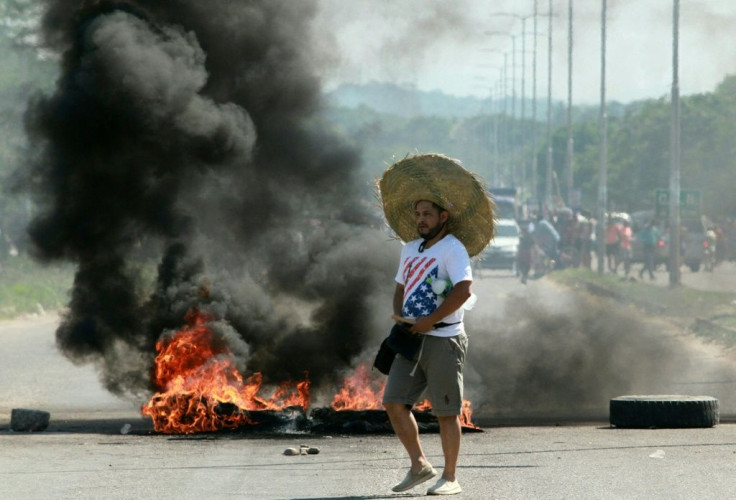
Bolivia saw fresh clashes between rival groups, road blocks and demonstrations on Friday following the controversial reelection of President Evo Morales in a disputed vote that triggered riots and allegations of fraud from the opposition.
From early morning, demonstrators draped in Bolivia's red, yellow and green flag blocked roads in La Paz with barricades of tires, rope and trash cans as they demanded their "vote be respected."
With 99.99 percent of the ballots counted, the country's Supreme Electoral Tribunal (TSE) declared Morales had secured 47.1 percent, against 36.5 percent for his closest rival Carlos Mesa -- just scraping past the 10 point margin of victory required for an outright win.
It means Morales, who turns 60 on Saturday, has won a fourth successive term despite the constitution he promulgated in 2009 limiting presidents to two mandates.
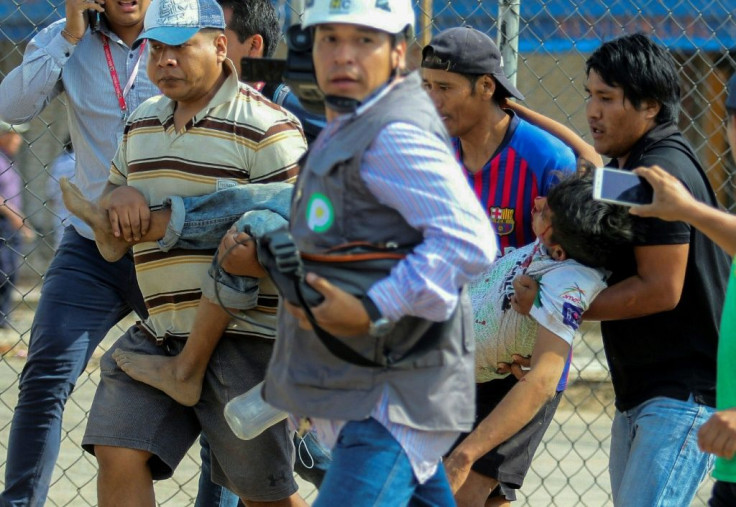
But the vote count, which first showed Morales and Mesa heading for a runoff, shifted dramatically on Monday to give the president a wider lead.
Morales's Movement for Socialism (MAS) party "just committed fraud" Mesa, who was previously president from 2003 to 2005, said on Thursday.
Backed by a collective of centrist and right-wing parties, he called on his supporters to maintain street protests.
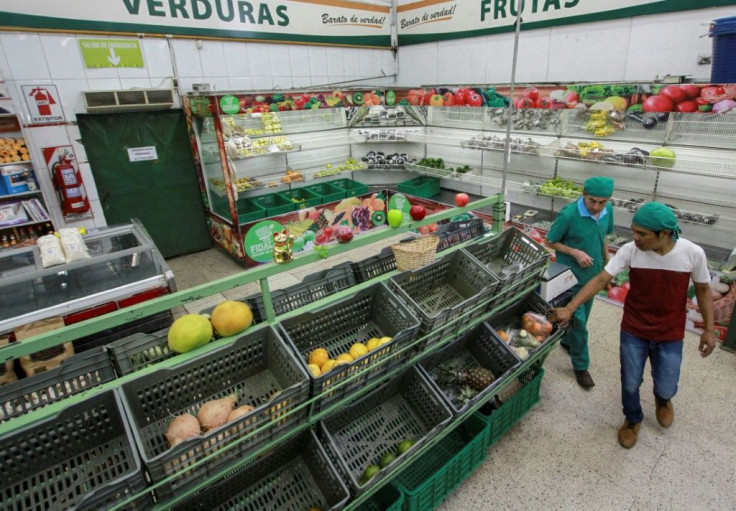
On Thursday the European Union, United States, Brazil, Argentina and Colombia called for a second round run-off to restore trust and confidence in the electoral process.
The Organization of American States (OAS) had already expressed "surprise" and "concern" over Monday's sudden shift in official tallies, and has agreed to scrutinize the results.
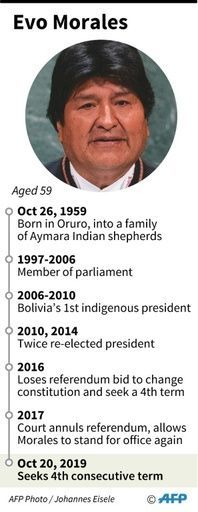
"These results should not be considered legitimate until the end of the requested scrutiny process," said OAS general secretary Luis Almagro, based in Washington.
No date nor conditions for such a mission have yet been publicized.
Back to work
Morales, the longest serving president in Latin America, was back at work on Friday, making public appearances and inaugurating public works.
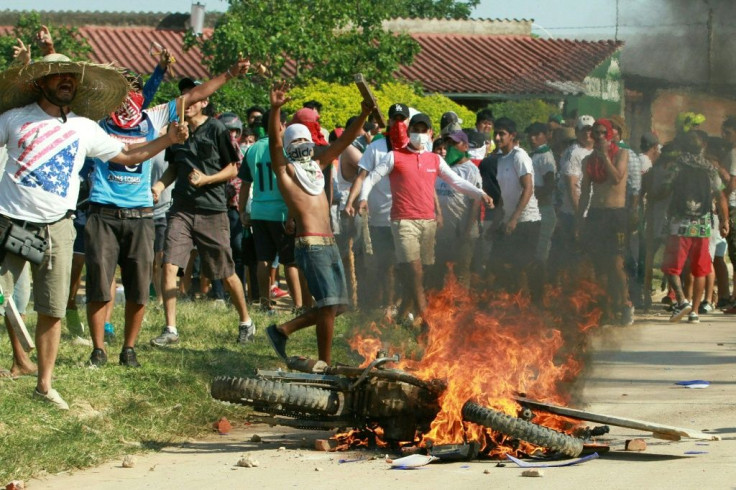
By midday he had already made two appearances in rural areas, thanking his supporters.
"We respect and salute the urban vote, from outside, but the rural vote guaranteed the process of change and, therefore, the development of the Bolivian people," said Morales.
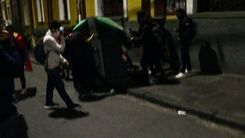
Already president since 2006, Morales will now remain in the post until 2025.
Left-wing allies Cuba, Venezuela and Mexico sent their congratulations.
Venezuela President Nicolas Maduro, on a trip to Azerbaijan, accused Mesa of attempting a "coup d'etat."
Violent protests have raged all week, and fresh clashes broke out on Thursday between supporters of both sides in Santa Cruz, the economic capital and opposition stronghold.
Offices in the city housing Bolivia's electoral authority were set on fire, as security forces clashed with demonstrators in La Paz and elsewhere.
Scandal
The TSE has been heavily criticized for its conduct of the count process, including by its own vice-president, who resigned.
On Monday, after the release of partial election results showed Morales just ahead of Mesa, mobs torched electoral offices in Sucre and Potosi, while rival supporters clashed in La Paz.
A general strike went into force on Wednesday.
Morales's very appearance on the ballot was itself a scandal.
In 2016 he tried to overturn the term limits but lost a referendum. Yet a year later, the Constitutional Court authorized him to stand.
Both the TSE and Constitutional Court are made up of members appointed by Congress, where MAS has a majority.
One-time union leader Morales, his country's first ever indigenous president, was hugely popular until his referendum defeat.
But his popularity has waned amid allegations of corruption and authoritarianism.
Morales points to a decade of economic stability and considerable industrialization as his achievements, while insisting he has brought "dignity" to Bolivia's indigenous population, the largest in Latin America.
© Copyright AFP {{Year}}. All rights reserved.





















